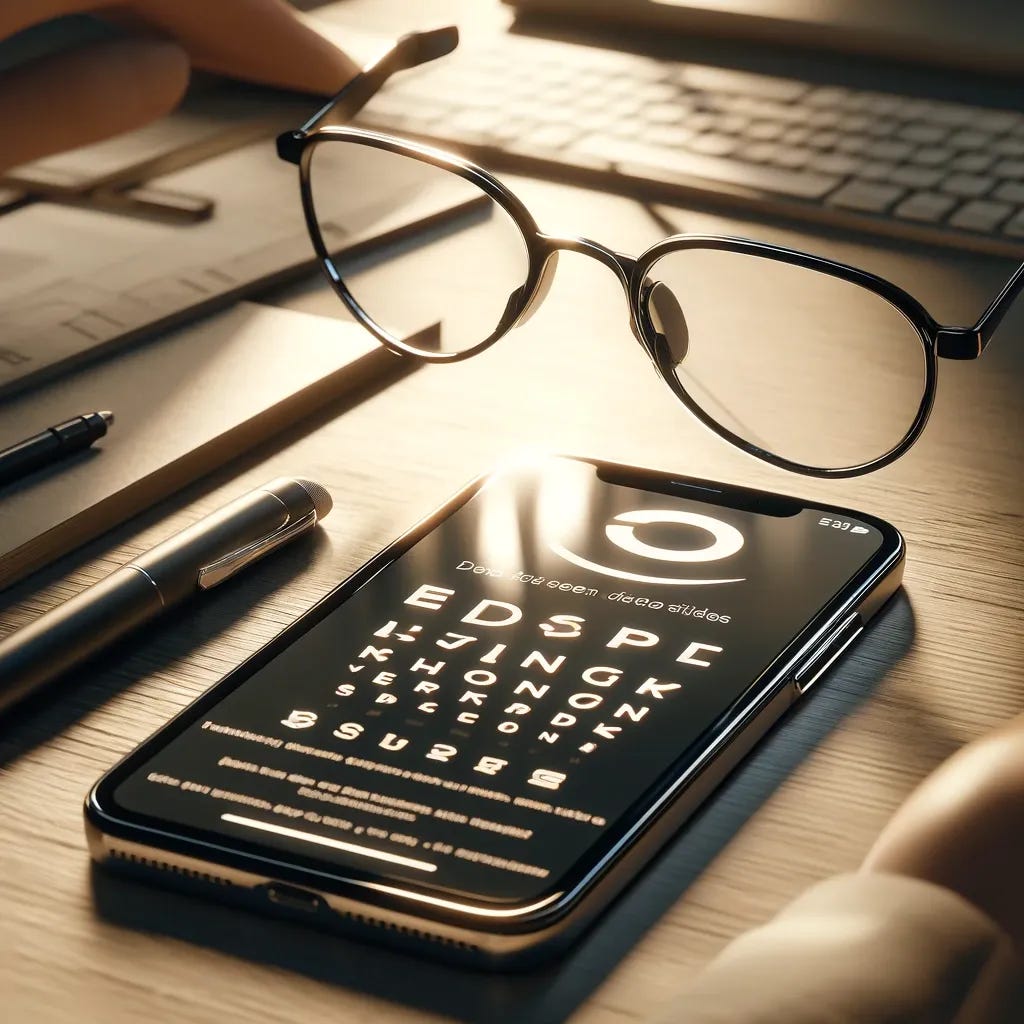No, Stronger Glasses Won't Cure My my condition, but thank you for the suggestion
Listen to the Article
0:00
/143.736
1×

Let's be honest: I'd rock the most fabulous Gucci specs money could buy if I could solve my visual impairment with a new pair of designer frames. But alas, life doesn't always provide such easy solutions. So, let's address the elephant in the room: microaggressions about my eyes. I like to think of them as the unwanted gift that keeps giving.
You know the drill. From well-meaning strangers suggesting larger fonts to coworkers fascinated by my screen magnifier, these "helpful" comments are constant reminders that some people see my disability as a puzzle to be solved, a problem they're determined to fix with their unsolicited advice.
"Have you tried stronger glasses?" is a classic. Other favorites include "Maybe you just need more eye exercises," or "I heard about this new miracle supplement..." Yes, dear friends, I have spent a significant portion of my life with experts in the field of the eye. I think they just might have considered these groundbreaking solutions. Shocking, I know.
Now, understand me. I appreciate genuine curiosity. I'm happy to explain how I navigate the world or share the brilliant technology that helps me accomplish my work. Curiosity opens doors to understanding and inclusion. It's when the assumptions kick in that my inner eye roll gets a comes out.
See, here's the thing: disability doesn't mean incompetence. I might need adjustments and accommodations but don't reduce me to the tools I use. My screen magnifier isn't a sign that I'm struggling; it's a sign that I'm resourceful and have found solutions. It means I'm out here doing the job differently than you're used to.
Instead of fixating on my visual impairment, how about we work together to make things more accessible? Simple adjustments can make a huge difference. Respect my expertise – I am the authority on my own experience. Let's ditch the pity party and embrace collaboration.
And please, for the love of all that's good, let's retire the jokes. "Hey, can you make the font on that spreadsheet a bit bigger? Haha, just kidding!" Sarcasm masked as helpfulness doesn't diminish the impact of your words. They reinforce societal biases around disability, creating an environment where I, and others like me, constantly have to justify our ways of working and of existing.
This isn't a story about inspiration or overcoming adversity. It's about challenging outdated ideas and demanding respect. I don't need to be "fixed," and I don't need your pity. I need a workspace and a world that sees disability as just one facet of diversity, a world where everyone's unique ways of navigating the challenges in front of them are valued and included.

